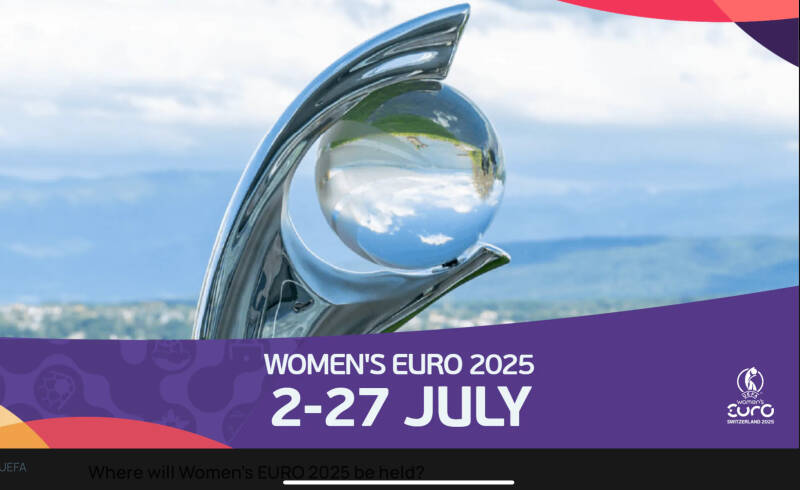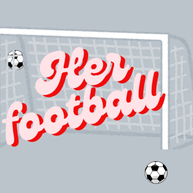
The teams are locked in, the groups have been created, and the only thing left to do is play the game.
The draw ceremony started on Monday, the 17th, in Lausanne, Switzerland, the host country.
Serena Wiegman has managed the last two winners; the host nations that went on to win were the Netherlands and England.
Participating national associations and players will receive record rewards, and club benefit payments are set to rise dramatically.
On Monday, the UEFA Executive Committee approved a €41 million prize money pot in Lausanne, Switzerland, ahead of the Women's EURO 2025 final tournament draw. This represents a 156% increase from 2022.
The greater rewards reflect UEFA's ongoing commitment to growing women's football across Europe, with €1 billion committed to the game's development between 2024 and 2030.
The pots went as follows
Pot A
Switzerland- the hosts get put in the highest group in hopes they will progress past the group stage
Spain
Germany
France
The rest won. They are in positions 1 to 4 in ranking
Pot 2- positions 4 to 7 in rankings
England
Italy
Denmark
Iceland
Pot 3- position 8 to 11 rankings
Netherland
Sweden
Norway
Belgium
Pot 4 position 12 to 15 rankings
Finland
Poland
Portugal
Wales
A member of each pot in each group is picked. Once picked, they get put into their position in the group to determine the order in which they face their opposition.
The groups are
Group A- Switzerland, Norway, Iceland, Finland
Group B- Spain, Portugal, Belgium, Italy
Group C- Germany, Poland, Denmark, Sweden
Group D- France, England, Wales, Netherlands
We will see some derbys with England and Wales and Spain and Portugal.
Group A
This is likely the best group to have been put in as it holds the host, Switzerland, and no country that won their qualification group. Norway is formidable.
Switzerland will take on former world, European and Olympic champions Norway.
Switzerland topped their group at the 2023 World Cup ahead of Norway and co-host New Zealand.
The best at the women's euro was the group stage in 2017 and 2022.
Norway won the Euros twice, in 1987 and 1993, though the last Euro in 2022 was in the group stage. Only three times since 1987 has Norway not reached at least the semis: in 1997, 2027, and 2022.
Iceland's best performance at a EUROS was in the Quarter-finals in 2013. This is their fifth qualification; they were the first team to beat Germany by three goals in a competitive game since Brazil in the 2008 Olympic semi-finals.
Finland's best result was in 2005 when they made it to the semifinal on their debut entrance into the competition
Group B
Group B includes the current FIFA Women’s World Cup holders Spain with Italy, the two-time European runners-up Italy.
Spain has never won the EUROs; its best position was in the semi-finals in 1997. Since 2022, Spain has won the World Cup, Nations League, u-20 and U-17 World Cups, and u19 and u17 EUROs exclusively with the women's team alone.
Portugal's first EUROS tournament was in 2017, and it has since made it into its third straight EUROS after making its World Cup Debut in 2023.
Belgium made the quarterfinals in 2022 in England and finished above Iceland and Italy in their 2022 group to earn their first women's senior knockout tie.
Italy finished runners-up in 1993 and 1997 but has never won the trophy. Until the group stage 2017, they had never failed to make the last eight.
Group C
Record eight-time champions Germany are in a group with regular rivals Sweden, 1983 winners, and newcomers Poland.
They have won the trophy eight times in 1989, 1991, 1995, 1997, 2001, 2005, 2009 and 2013. They have come from behind in three of their five qualifying wins.
Poland has never reached the playoffs for a major tournament, so this is their debut in a football tournament. But in 2012/13, they won the Women's U17 EUROS.
Sweden won the EUROS in 1984 and was knocked out in the semi-finals against England. In that match, Alessia Russo scored the tournament's winning goal, a no-look backheel goal. Sweden was also a World Cup finalist in 2013 and an Olympic silver medallist in 2016 and 2021.
Finally, in group C, Denmark, which was runners-up in 2017 but missed out to the Netherlands, has qualified for all eight tournaments since the introduction of the group stage.
Group D
Serena Wiegman will face her previous employer and national team in the Netherlands. Group D has the last two Euro winners, with the Netherlands and England managed by Serena Wiegman.
Wales, the lowest-ranked country in this, is facing its rival in England. They had to have them in the same group out of all the groups. Wales is in the group dubbed the previous team and her national team in the group stages. England will face the same team that beat them to the top spot in League A when France won their qualification group, the group of death, in their first-ever tournament.
Some fans have made bold statements on social media, saying that whoever wins this group will win the entire competition.
The top two teams from each final tournament group will progress to the knockout phase.
France had been an eight-team Womens Euros was introduced in 1997 France had gone in the last eight every time before making the 2022 semis by beating holders the Netherland in extra time.
Wales have only previusly got into tthe play-offs for the 2023 World Cup, Losing in extra time to Switzerland.
Group stage Matchday 1: 2-5 July
Group stage Matchday 2: 6-9 July
Group stage Matchday 3: 10-13 July
Quarter-finals: 16-19 July
Semi-finals 22-23 July
Final 27 July
Quarter-finals
Wednesday 16 July
Match 25: Winners Group A vs Runners-up Group B (Geneva, 21:00)
Thursday 17 July
Match 26: Winners Group C vs Runners-up Group D (Zurich, 21:00)
Friday 18 July
Match 27: Winners Group B vs Runners-up Group A (Bern, 21:00)
Saturday 19 July
Match 28: Winners Group D vs Runners-up Group C (Basel, 21:00)
Semi-finals
Tuesday 22 July
Match 29: Winners Match 26 vs Winners Match 25 (Geneva, 21:00)
Wednesday 23 July
Match 30: Winners Match 28 vs Winners Match 27 (Zurich, 21:00)
Final
Sunday 27 July
Winners Match 29 vs Winners Match 30 (Basel, 18:00)
Venues
St. Jakob-Park, Basel
Stadion Wankdorf, Bern
Stade de Genève, Geneva
Stadion Letzigrund, Zurich
Arena St.Gallen, St.Gallen
Allmend Stadion Luzern, Lucerne
Arena Thun, Thun
Stade de Tourbillon, Sion


Add comment
Comments